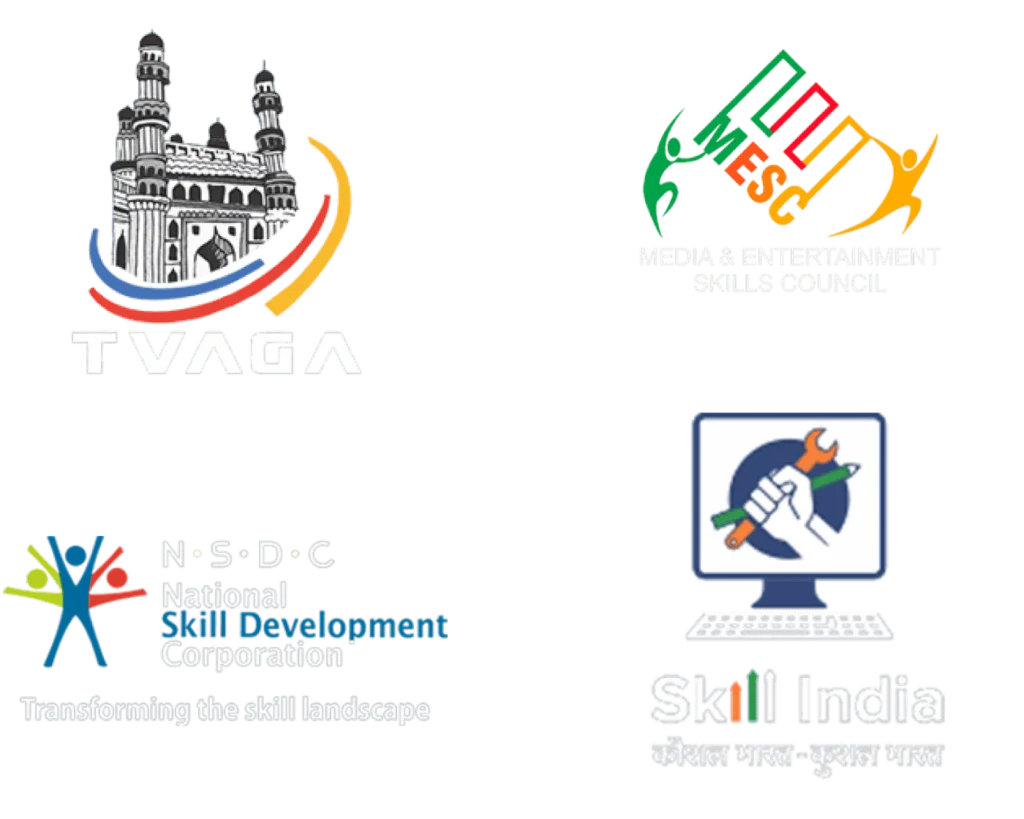Film Making Training Institute Ameerpet
At AVGCI Ameerpet, we understand that storytelling is at the heart of filmmaking. Our program empowers you to master the art of crafting compelling narratives that resonate with audiences and elevate your projects to new heights. Whether you’re interested in directing, screenwriting, or producing, our comprehensive curriculum equips you with the essential skills to succeed in the competitive film industry.




What is Film Making?
Filmmaking is the creative process of producing motion pictures, from concept to final cut. It involves various stages including scriptwriting, directing, cinematography, editing, and post-production. Filmmakers work to bring stories to life, blending technical skills with artistic vision to create impactful visual narratives for film, television, and digital media.
What courses are we offering in Filmmaking?
We offer a range of Filmmaking courses focused on Cinematography, Direction, and Photography to equip aspiring filmmakers with essential skills. Together, these courses provide a comprehensive foundation for a successful career in filmmaking, helping students bring their creative vision to life on screen.
The filmmaking industry offers a wide range of exciting career opportunities, particularly in direction, photography, and cinematography.
Cinematography
Master visual storytelling through camera techniques, shot composition, and lighting. Learn how to create stunning visuals that enhance the narrative and mood of films and digital media.
Career Opportunities
Cinematographers, also known as directors of photography (DoP), play a crucial role in capturing the visual essence of a film. They collaborate with the director to establish the film’s visual style and are responsible for making artistic decisions regarding camera angles, lighting, and shot composition. To succeed in this role, cinematographers must have a keen eye for detail and a solid understanding of camera equipment and techniques. Many begin their careers as camera assistants or in other entry-level positions before advancing to more senior roles.
Job Roles in Cinematography
Direction
Learn the art of directing, working with actors, and translating scripts into visual stories. Master scene blocking, collaboration with crew, and leading a production from concept to final cut.
As a film director, you oversee the entire creative process of a film, managing everything from script development to post-production. Directors work closely with actors and crew members to bring their vision to life, requiring strong leadership and communication skills. Many directors start their careers in junior roles, such as assistant directors or runners, where they gain valuable experience and build industry connections.
Job Roles in Direction
Photography
Develop essential photography skills, including composition, lighting, and camera settings. Learn how to capture visually compelling images that elevate storytelling for both film and digital platforms.
In filmmaking, photography encompasses various roles, including still photographers who capture behind-the-scenes images or promotional shots for films. These professionals often work closely with marketing teams to create compelling visuals that attract audiences. Additionally, photography skills are essential for directors and cinematographers alike, as they must understand how to frame shots effectively to tell a story visually.


